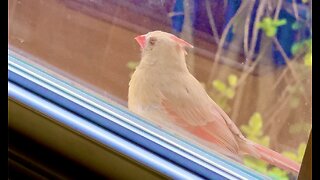Ant Army = “Swarm Intelligence”
If the conditions are right, swarms of ants can sometimes be seen in sidewalk cracks and crevices around my neighbourhood. The behaviour of ants can be fascinating to laypeople and entomologists alike. (Entomologists study the impact and relationships of insects on each other and on the environment.)
There is a theory called “swarm intelligence”, which suggests that insects such as ants are governed by collective intelligence rather than individual intelligence. (The Borg, anyone?) Swarm intelligence explains why colonies of ants construct ant highways, seamlessly delegate tasks throughout workers and respond quickly and effectively to encroaching enemy ants, while individual ants are nearly incapable of solving a simple navigational puzzle when isolated from other ants.
One reason why ants swarm is to collect food for the colony. Swarm intelligence is highly beneficial to insects like ants for food collection for many reasons. A swarm of ants can collectively find the shortest, easiest path to the best food source and coordinate foraging efforts. An ant colony can also make collective decisions about how many ants should be sent out on foraging missions each day, especially taking into account such considerations as known food sources, bounty of food needed and amount of food remaining in the colony. Thus, swarm intelligence can make food foraging extremely efficient.
Another primary reason for ant swarming is mating. Worker ants, which comprise the majority of the colony, are sterile and only perform manual labor. Winged ants, both male and female, are sexually mature. At certain times throughout the year, typically early spring and late summer, winged ants leave the colonies and form mating swarms. Ants often swarm over prominent landscapes, such as large trees or house chimneys. This phenomenon is known as “hilltopping.”
-
 0:04
0:04
AmplifiedLIFE
1 month ago $0.02 earned“Peep”-ing & Chirping Cardinal
79 -
 1:11:21
1:11:21
Kim Iversen
10 hours agoWW3?!? Is The West Secretly Behind Another Color Revolution Aimed At Toppling Russia? | Biden Maniacally Bombs Yemen and Russia
65.3K54 -
 1:36:46
1:36:46
Roseanne Barr
8 hours agoFor Love of Country with Tulsi Gabbard | The Roseanne Barr Podcast #50
77.3K121 -
 33:59
33:59
TudorDixon
14 hours agoA Story of Sacrifice and Service with Joe Kent | The Tudor Dixon Podcast
25.7K4 -
 27:22
27:22
The Nima Yamini Show
6 hours agoAlpha Nima Crushes Nick Fuentes & Business Tips with Dylan
21.4K13 -
 1:19:23
1:19:23
Mally_Mouse
6 hours agoLet's Hang - Cosplay Stream!!
38.4K1 -
 1:05:06
1:05:06
Lou Dobbs
12 hours agoLou Dobbs Tonight 5-31-2024
53.1K31 -
 1:42:57
1:42:57
The Quartering
12 hours agoDonald Trump Conviction BACKFIRES, Massive Funds Raised, Democrats Swap Parties & More
88.8K91 -
 26:11
26:11
Stephen Gardner
10 hours ago🔴HUGE TRUMP WIN! Biden, Hillary, Obama ALL IN BIG TROUBLE NOW!!
85.9K437 -
 9:42
9:42
Breaking Points
1 day agoTERRIFIED Biden Moves DNC Online
72.9K67